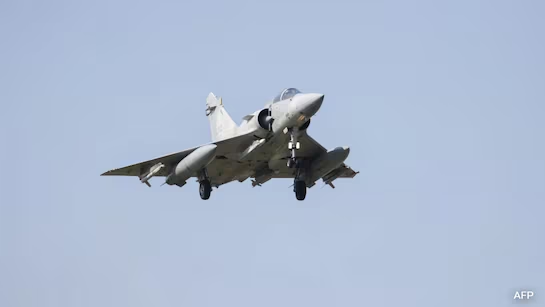China ‘reacts’ to Taiwan president’s comments with new military drills

China launched new military drills off the coast of Taiwan on Monday, calling them a “punishment” for remarks made by President William Lai, who vowed to “resist annexation” and defend Taiwan’s sovereignty. China considers Taiwan, a self-governing island, part of its territory and has indicated it may use force to reclaim it.
On Monday, Taiwan reported detecting 34 naval vessels and 125 aircraft operating around the island. Chinese state media released maps showing military forces positioned around Taiwan, claiming the drills had concluded successfully. The People’s Liberation Army (PLA) stated that the exercises involved multiple branches of the military and simulated land, sea, and air assaults on Taiwan.
Senior Captain Li Xi, spokesperson for the PLA Eastern Theater Command, noted that the drills “fully tested the integrated joint operation capabilities” of their forces. Meanwhile, Taiwan’s airports and ports remained operational, although the defense ministry condemned the Chinese maneuvers, emphasizing a priority to avoid direct confrontations that could escalate tensions. Outlying islands were placed on high alert.
China’s foreign ministry confirmed that the exercises included simulated military assaults and port blockades, declaring Taiwan’s independence as “incompatible” with regional peace. Notably, a post by the Chinese coast guard on Weibo highlighted that the patrol route formed a heart shape.
These drills, dubbed Joint Sword 2024-B, were anticipated since May, following previous large-scale exercises coinciding with President Lai’s inauguration. Beijing views Lai as a “troublemaker” for his pro-independence stance, and his recent comments on Taiwan’s national day drew sharp criticism from China, which accused him of escalating tensions with “sinister intentions.”
While the drills were expected, the proximity of Chinese forces to Taiwan, combined with aggressive rhetoric, marked a significant display of military pressure. In response, the US condemned the exercises, stating there was no justification for them following Lai’s “routine” speech and urged China to refrain from actions that could destabilize the region.
Historically, China has intensified military intimidation of Taiwan since 1996, following the island’s first direct presidential elections. After the election, China restricted access to certain areas around Taiwan and launched ballistic missile tests. In contrast, US President Bill Clinton deployed Navy forces to the Taiwan Strait to deter potential aggression.
Tensions diminished between 2008 and 2016 but reignited after the election of Tsai Ing-wen from the Democratic Progressive Party (DPP), which China views as pro-independence. China subsequently severed direct communications with Taipei.
The situation intensified again in August 2022 when US House Speaker Nancy Pelosi visited Taipei, seen as a provocative act by Beijing. In response, China conducted extensive military drills, including flying ballistic missiles over Taiwan and into the Pacific Ocean for the first time.
